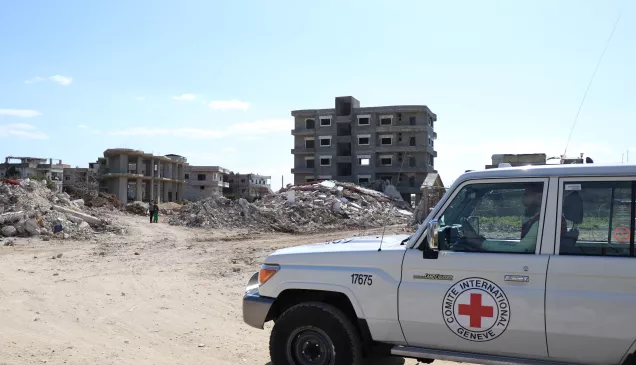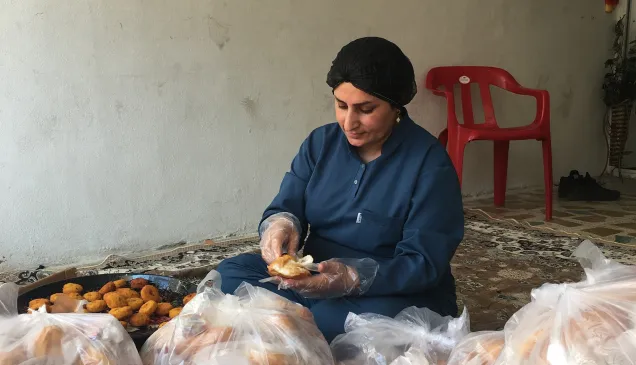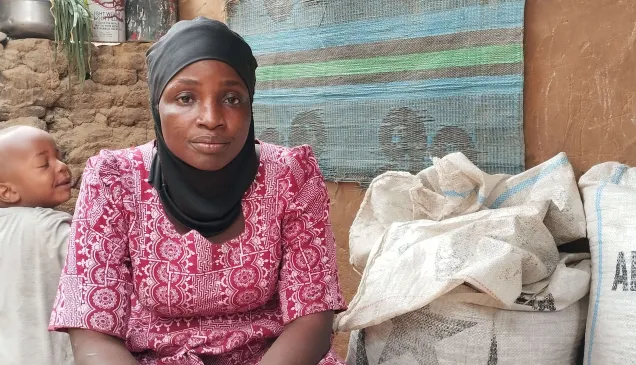Kenya: Fishermen enjoy bountiful catch thanks to fish traps
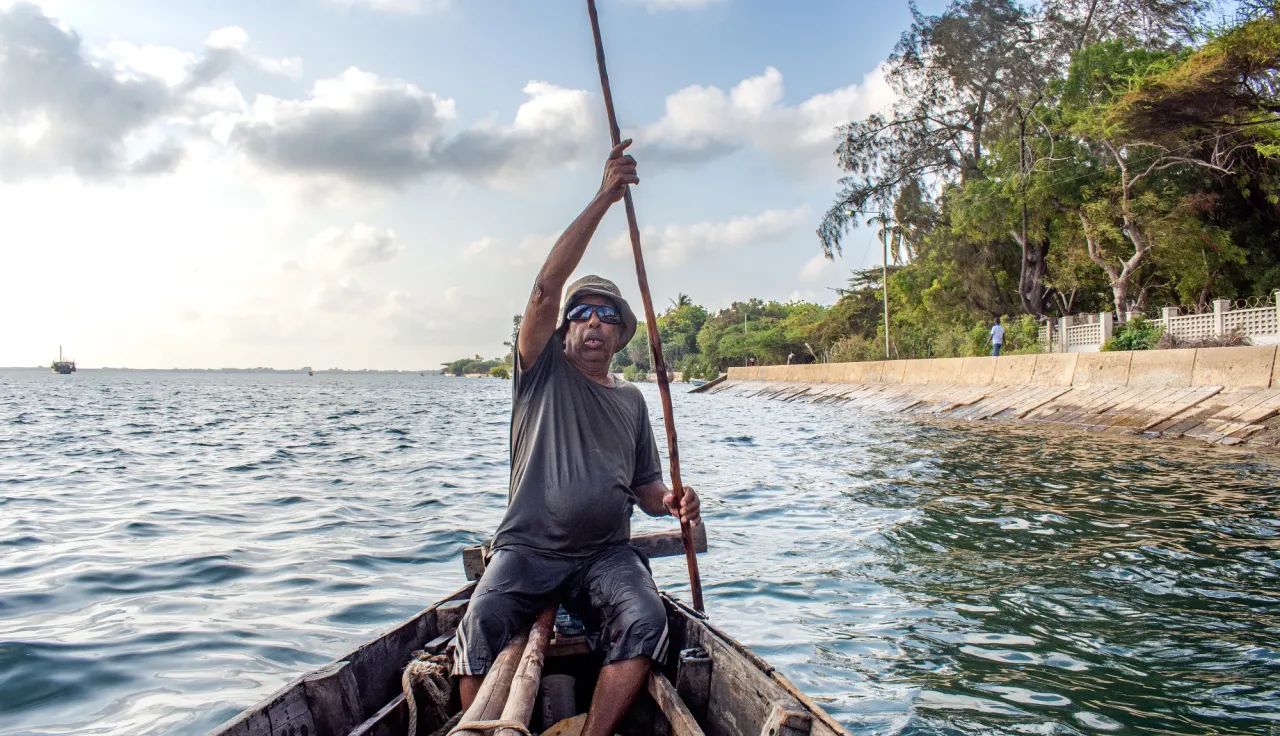
Fakii Ahmed steers the traditional sturdy wooden dhow (Mitori) he has owned for the last 10 years.
Fakii, a fisherman from Lamu learnt the diving and trapping skills from his father over 57 years ago, and at 73 years old, he still believes he has the strength to continue doing what he loves and knows best.
The search for the night's meal is on his mind as he heads to fetch his fish traps (popularly known as Mitego ya Malema) hoping to get a good catch.
Even as age catches up with me, I still feel that I have enough strength to continue fending for my family through fishing as well as assisting my community whenever called upon during diving emergencies when they occur in the area
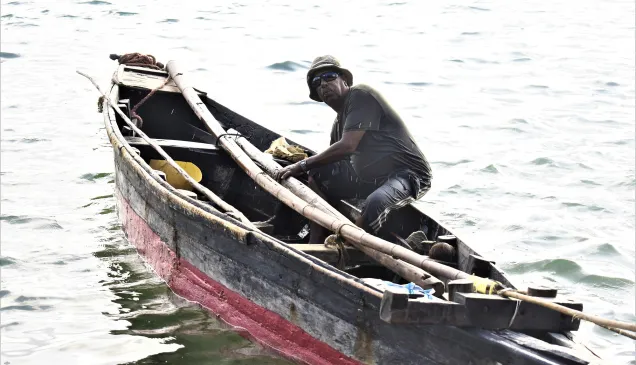
Fakii Ahmed steering his dhow
Fakii and his fishing companion Ali Mbwana have been working together for the last 10 years. They use environmentally friendly fish traps received from the ICRC and the Kenya Red Cross. They source for Sea snails using some leaves & green plants which they place on the traps as bait and this is how they manage to catch the fish.
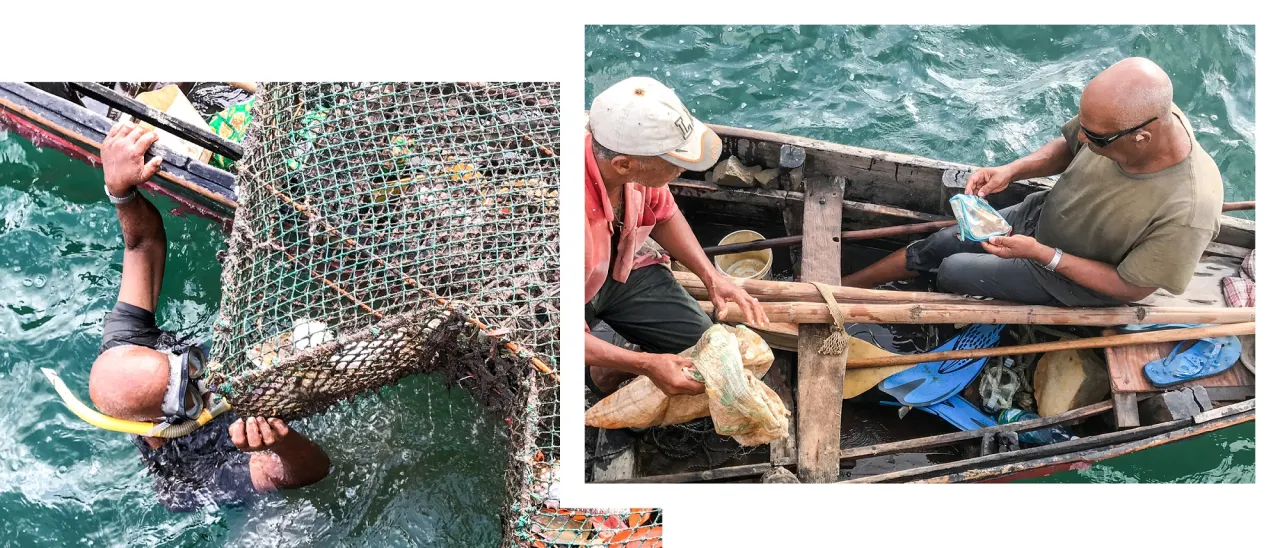
On alternate days, the two gentlemen head out to the sea early in the morning to harvest the fish. As Fakii dives to retrieve the traps underwater, Ali helps to pull them and separates edible fish from a whole lot of other trapped sea compenents.
On a good day we get 8 - 12 kilograms in every catch, and we sell at Kenya shilling 250 per kg. During the high season, each trap can fetch upto 10 kgs per catch.
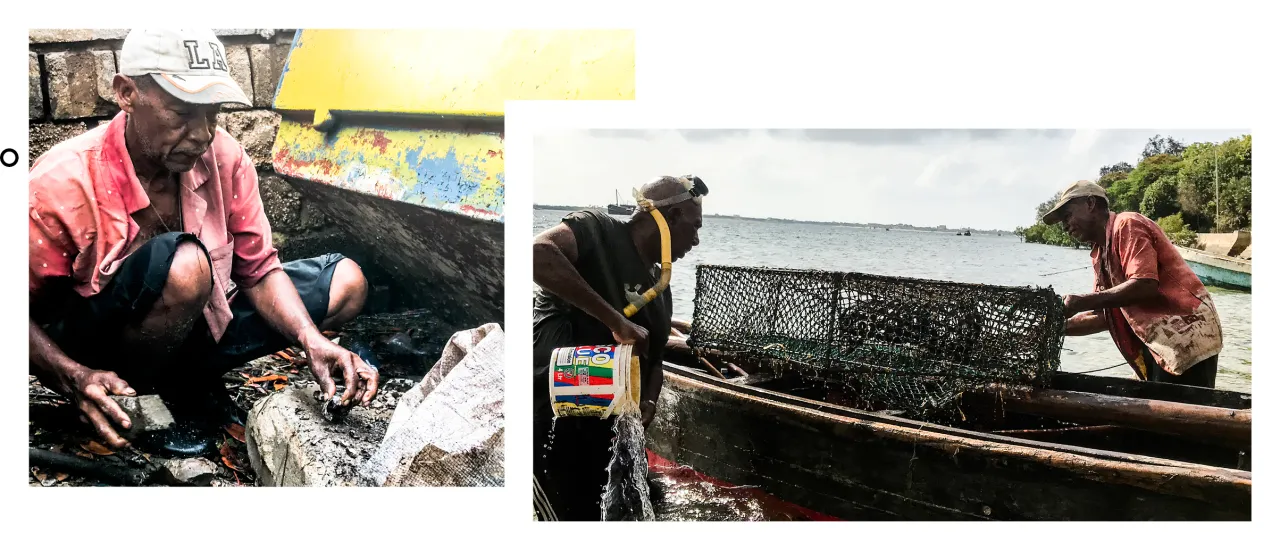
These fish traps are environmental friendly, they trap many, large and mature fish and they are not labour intensive.
Haidar Ahmed, Fakii's son is full of praise for his father who he says is popular within the community and is often sought after for his diving skills.
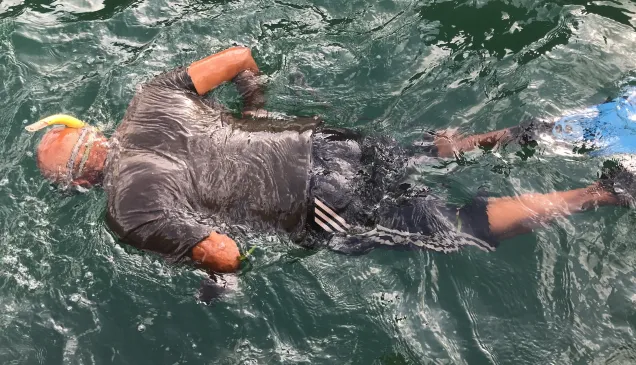
Fakii diving to retrieve the fish trap
My father is very passionate about the sea. He wakes up at 4.00 am to check on his boat so that he doesn't miss on the fishing routine.
This ocean and proceeds from the fish sales ensured we all got an education and now have a livelihood.
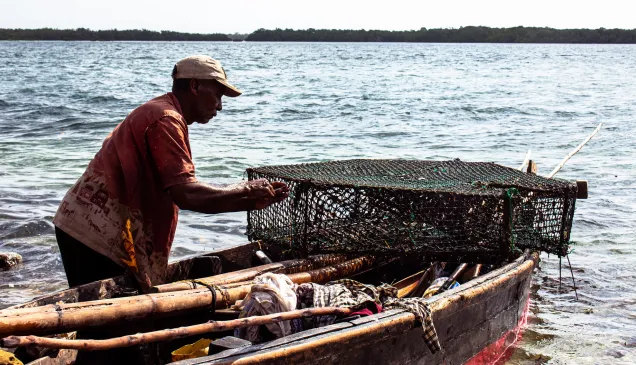
Ali doing the last-minute preparations on the fish trap before Fakii dives and places it at the sea bed. Josiah Karanja/ICRC
The ICRC in close partnership with the Kenya Red Cross Society has been engaging with communities, authorities and other actors in Lamu and Garissa counties, focusing on projects that strengthen the resilience of people affected by violence and climatic shocks.
Various forms of support were given to help the community meet their basic needs or increase their income. Among other initiatives, the provision of fish traps has enabled over 300 families in 9 villages (Mtangawanda, Siyu, Pate, Faza, Shanga Rubu, Shanga Ishakani, Ndau, Kisingitini & Kiwayu) from Lamu to increase their daily earnings, provide for their families as they preserve the environment.

